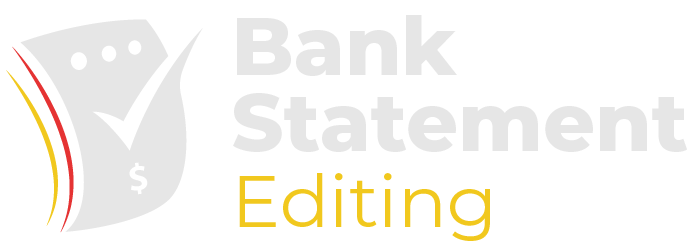What Is a Proof of Income Letter? (And How to Write One) 2024
Introduction
Navigating financial documentation can be a daunting task, especially for self-employed individuals and those who predominantly deal in cash transactions. Among these crucial documents is the “Proof of Income Letter.” This piece is designed to shed light on what it is, why it’s important, and how you can effectively craft one to suit your needs.
Understanding Proofs of Income
A proof of income is a document or set of documents that someone, like a lender or landlord, may request to verify your income and ability to pay. For those who are self-employed or work with cash, this might include a variety of forms like Pay Stubs, Pay Slips, and Bank Statements. In today’s digital age, options like generating a Bank Statement PDF or using a Bank Statement Generator Software have become increasingly accessible. These tools, when used ethically, can help in efficiently creating necessary documentation.
Do you need help with
Contact us to edit your Bank Statement and and get your PDF documents within 12-24 Hrs
The Importance of Income Verification for Self-Employed and Cash Workers
For self-employed individuals and cash workers, proving income can be a bit trickier than for those with a regular paycheck. This verification is pivotal when applying for loans, renting properties, or any financial dealings where your income needs to be assessed. It demonstrates your financial stability and reliability as a borrower or tenant.
Legal Aspects of a Proof of Income Letter
When it comes to income verification, legality is paramount. This means ensuring that all information provided is accurate and truthful. While tools like Bank Statement Generator Software can be helpful, they must be used responsibly to reflect genuine transactions. Misrepresentation can lead to legal complications, so honesty is always the best policy.
In recent years, the demand for online tools capable of generating documents like Fake bank statements has surged. Among these, the bank statement generator and bank statements generator have gained notable popularity. These platforms offer services to create detailed financial summaries, often used for various personal and professional needs. While they are intended to aid in organizing financial records, some users explore these tools with different motives. Particularly, there’s a rise in queries about how to generate bank statement or generate bank statements that reflect specific financial scenarios. These generated statements are sometimes used for simulations or educational purposes, helping individuals understand the complexities of financial planning and management.
However, this trend has also seen a controversial twist with the emergence of services like fake bank statement generator and fake bank statements generator. These tools, which often include options like creating a “fake American address,” raise ethical and legal questions. The purpose of a generate fake bank statement service is typically to create a document that appears to be an authentic bank statement but is, in fact, fabricated. While there may be legitimate uses for such a service, like in filmmaking or educational demonstrations, the potential for misuse is significant. It’s important to consider the legal implications and ethical considerations when using or promoting such tools, as they can easily be employed for deceptive purposes.
Crafting an Effective Income Verification Letter
- Header: Start with your name, address, and contact information.
- Subject Line: Clearly state the purpose of the letter (e.g., “Proof of Income Letter”).
- Salutation: If you know the recipient’s name, use it. Otherwise, “To Whom It May Concern” works.
- Body:
- Start by introducing yourself and your employment status.
- Clearly state your average income, possibly breaking it down by month or year.
- Mention any additional relevant financial details (like a summary of yearly profits if you’re self-employed).
- Supporting Documents: Reference the inclusion of supporting documents like bank statements or pay slips.
- Conclusion: Offer to provide additional information if needed.
- Signature: Sign the letter to authenticate it.
Additional Documentation and Alternatives
Besides a proof of income letter, other documents like tax returns, bank statements, and pay slips can serve as income verification. These documents provide a broader picture of your financial health and can often be generated through online tools for added convenience.
The digital era has brought forth a myriad of online services catering to various needs, among which the creation of simulated documents stands out. A significant part of this domain is the generation of fake US address or fake US address information. Such services, often labeled under fake USA addrees or similar misspellings, cater to a niche audience that requires a simulated American address for various non-deceptive purposes. These might include software testing, where developers need to test the geographic data handling capabilities of their applications, or for creative endeavors where a realistic but non-existent address is needed for fictional settings.
Parallel to this, there’s a growing trend in services offering to make bank statements. This need often intersects with the demand for USA fake address generation. While the intention behind using such services can range from harmless creative use to more questionable purposes, the ethical and legal implications remain a gray area. It’s crucial to highlight that, while generating a simulated bank statement for personal record-keeping or educational demonstrations might be harmless, any intent to deceive or commit fraud is strictly illegal and unethical. The use of these services, particularly in sensitive financial contexts, must be approached with a high degree of responsibility and awareness of the law.
Conclusion
For self-employed individuals and cash workers, a well-crafted Proof of Income Letter is an essential tool in your financial toolkit. It’s not just about proving how much you earn; it’s about establishing trust and credibility in your financial dealings. Remember, accuracy and honesty in these documents are not just legal imperatives; they are pillars of financial integrity.
